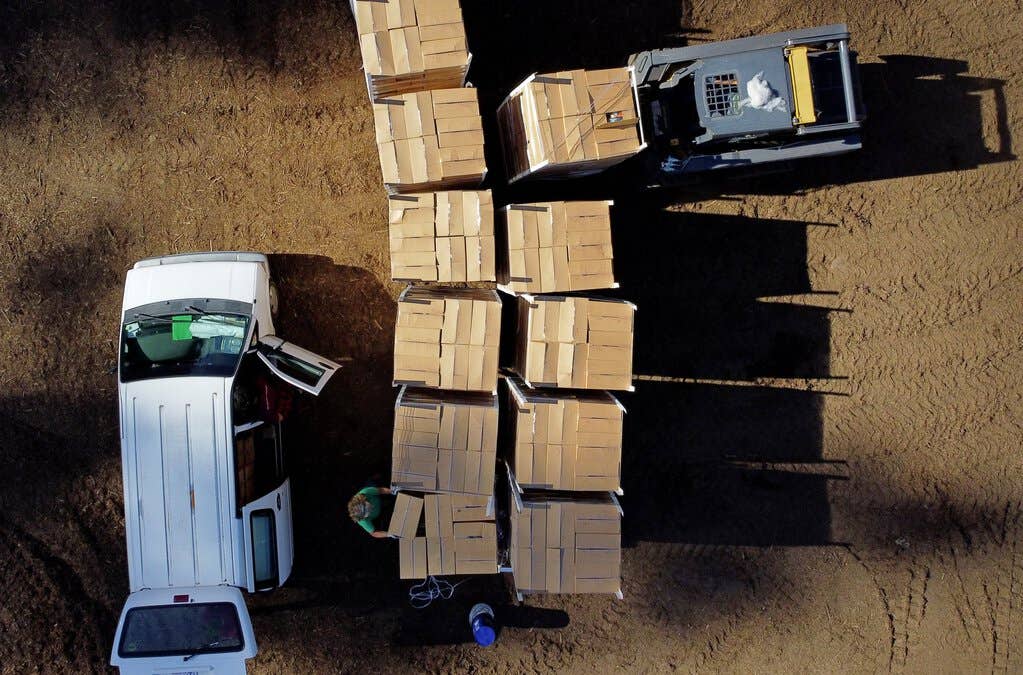2.4 million pounds: How sending surplus crops to food banks is helping Washington farmer
[July 21, 2020: Sponsored Content] It started with a simple message on Facebook on April 29. George Ahearn had heard about farmers in…

[July 21, 2020: Sponsored Content]
It started with a simple message on Facebook on April 29.
George Ahearn had heard about farmers in Eastern Washington who were giving away potatoes and onions and wanted to know if someone had a truck he could borrow to haul the discarded crops to Western Washington food banks.
The response was immediate and dramatic. A convoy of four trucks, including two with trailers, made the trip east, helping provide quite a bounty for local food banks.
“We brought back 9.36 tons when my original goal was 2,000 pounds (one ton),” Aheard said.
The effort didn’t end there. EastWest Food Rescue is now a registered nonprofit organization, having delivered more than 2.4 million pounds of crops to more than 160 food banks. Not only is it helping with food security, but the organization is paying the farmers, who saw the market for some of their crops vanish during the coronavirus pandemic.
“The whole thing started because of COVID,” said Nancy Balin, who answered Ahearn’s initial request and is now one of three directors of the program. “They immediately lost all the restaurant contracts they had for these restaurant-quality potatoes and onions. And since European countries were shut down, they weren’t exporting them because their restaurants were closed.
Like these kind of stories? Get The Brighter Side of News' newsletter.
“At the time COVID all happened, the 2020 potatoes were all in the ground and the 2019 potatoes were in cold storage. The problem is, when the 2020 potatoes are done, those 2019 potatoes better be gone or there is nowhere for the 2020 potatoes to go. And that’s where farmers were faced with this terrible choice of destroying the 2019 potatoes so the 2020s could go in there or just the let the 2020s rot in the fields and plow them under.”
Meanwhile, unemployment was spiking everywhere, along with the need for food.
“People who had never needed food before needed food banks, and these farmers have potatoes that they need to get rid of,” Balin said.
Ahearn, who grew up in the farming town of Othello about 65 miles northeast of Yakima but now lives in Bothell, read a story about the predicament of farmers in his hometown, prompting him to want to do something. So he contacted Terragold Farms in his hometown.
“Owner AJ Ochoa offered five semi-loads (of potatoes),” Ahearn said. “I said, ‘I’ve got a private vehicle, and I can’t take that.’ He said, ‘Just come take what you need.’”
Ahearn contacted food banks, and while they wanted the potatoes, along with onions being donated by Target AG Production in Othello, they couldn’t take them loose and not in bags.
That is when Zsofia Pasztor, founder and owner of Farmer Frog, a nonprofit that allows children and families grow food for themselves, stepped in.
She offered crates to put the produce in, and already had a distribution system set up with food banks for other programs she was running.
“It was a natural fit, and here we are, having saved 2 million pounds (of produce),” Pasztor said.... MORE



